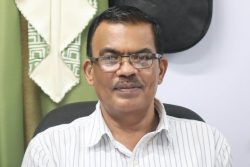Birthdays are always a time for celebration and reflection. Many Guyanese will feel happy that we have survived as a united nation. For reasons of partisan politicking, Independence was de-emphasized after Guyana became a Republic on 23 February, the date of the Berbice Slave Rebellion in 1763. It was also conveniently close to Burnham’s birthday on 20 February. Republic Day became the occasion for Guyanese to express their patriotic fervour while Independence Day was all but forgotten, only to be revived after the PPP attained office in 1992. Although there are virtually no celebrations by the public, I am sure that most agree with me that a day off work is welcome. The reason for the holiday gives us the opportunity to reflect on what Guyana has achieved while enjoying time over a long weekend with friends and family and maybe a glass of wine or beer along with favourite dishes. For some, swimming and picnicking out of town are the preferred means of celebration. For many it beats, any day, the crowds and raucous music of the younger and more daring on Republic Day.
ndependence Day provides a conducive time for reflection. At critical periods in our short life as an independent nation, and even before, it was not always a certainty that we would have survived. The strains imposed by the immediate pre-Independence period and the first quarter of a century after Independence, sustained divisions while at the same time claims were advanced that they were eliminated. This era of ambitions inspired by Independence did not materialize. Instead it disguised the fissures that had existed in our society prior to Independence. They had remained intact, but submerged, waiting to reveal themselves once the power equation changed. Those fissures have since surfaced from time to time and though they have now somewhat subsided, they remain intact today, simmering, to explode once again in circumstances that induce political exploitation.
No one knows whether the discovery of oil and the developing of the economy based on the resources that oil is making available, will make a difference to our politics. Emigration is still having an impact and immigration soon will. While substantial efforts need to be continually made to eliminate poverty, a difficult, sustained and painstaking job, progress will be made in the future. It is not known whether the impact of reducing poverty will have an effect on political tensions or change political perspectives. Already the issue of power sharing is off the agenda. Neither political party appears to have any interest in the issue. Just as the PPP misunderstood the reasons for its loss in 2011 and as a result of not resolving them, returned to the electorate in 2015 with the same unresolved issues and lost again, so the APNU+AFC government, misunderstanding the reasons for its victory and the fragility of its coalition, failed to implement its power sharing manifesto promise and lost it all in 2020. The attempt to rig the elections in 2020 has all but destroyed the reputation of the PNCR in the Caribbean although it has built, with the help of Democratic House Leader Hakeem Jeffries, some ethnic affiliations in the US.
With the PPP in office, a treasury bursting with oil money, and a PNCR in disarray reflected by a contest for its leadership and expulsions, the PPP has a free ride to the elections next year with the likelihood of a comfortable victory. Whether or not the PPP will breach the ramparts of ethnic security and receive a significant mandate from the African Guyanese community is not known. At every election the PPP has always expected a breakthrough in electoral support in its favour across the ethnic divide. This has never happened and there is no reason why this pattern would change. There is no evidence that economic or social advancement are enough to override deep ethnic insecurity such as exists in Guyana. But if I am wrong, I will eat a copy of this article in front of Freedom House.
Whatever the political outcomes of all the developments that are now taking place, Guyana is well positioned to make a significant impact on the economies of Caricom countries. Opportunities exist, or will emerge, for the developed economies in the Region to benefit significantly from Guyana’s growing economy and for Guyana to assist those countries that are not as well endowed. Evidence already exists that Trinidad is benefiting significantly, and that Barbados and Jamaica are aware of the opportunities that exist. Along with Guyana’s explosive economic growth will come political clout. It is incumbent that, as resources later permit, Guyana’s economic and political investments are wisely deployed and with humility. Guyana should never forget the 1970s and 1980s when we were shunned across the Region because Guyana had fallen into poverty. We must be careful that we should never visit upon the unfortunate what we once experienced because we were poor.
(This column is reproduced with permission from Ralph Ramkarran’s blog, www.conversationstree.gy)







